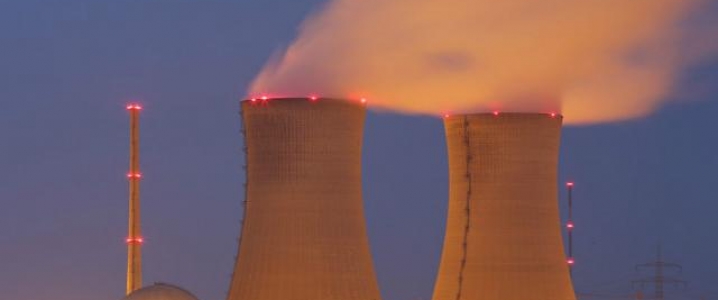Toshiba, the troubled Japanese electrical and electronics conglomerate and former owner of the bankrupt Westinghouse, Corp., decided last week cancel its Moorside nuclear project in the UK. If completed, this large nuclear power station would have provided about 7 percent of the UK's electricity needs. Not that this announcement was a surprise.
Toshiba's announcement follows word of a breakdown in negotiations with prospective buyer, Korea Electric Power (KEPCo). It appears the Koreans, like others, are rethinking their commitment to nuclear energy worldwide.
Absent the cancellation decision, Toshiba is likely to have had trouble financing a project of this magnitude especially given the stress on its finances from its troubled venture into American nuclear construction. The Moorside project in Cumbria will have cost Toshiba over £400 million and management announced it was taking a write off of £125 million. Toshiba described its decision as “economically rational.” Amen to that.
A government spokesperson commented, “All proposed nuclear projects in the UK are led by private sector developers and … this is entirely a commercial decision for Toshiba.” This is an interesting statement. The only UK nuclear construction project currently underway is owned by French and Chinese state controlled entities, financed with liberal debt guarantees provided by the UK government.
But let's review the UK's nuclear energy plans. There were at a minimum three large facilities planned. One for Cumbria, the Toshiba NuGen entity, is now cancelled. The Hinkley Point C units, being built by a French and Chinese consortium, are under construction and slated for commercial service in 2025-27. Lastly, Hitachi had a planned nuclear site in Wylfa.
Given the turmoil surrounding new nuclear construction, we have our doubts about the financial viability of Wylfa. This plant would cost at least 20 billion pounds ($26 billion). Press reports indicate government support would be necessary for close to two thirds of that amount. To further encourage developers, a government minister said in June that the government might directly invest 5 billion pounds into the project for a one third ownership share.
A little over three decades ago, Prime Minister Margaret Thatcher wanted her government to end state ownership of power producers. And she privatized the UK's electricity industry. Her successors, who still call themselves Conservatives, seem to have reversed course. Related: Can We Expect A Major Rebound In Oil Prices?
In all fairness UK governments, both Tory and Labor for the past three decades have advocated for free markets in energy and utilities--except when it comes to nuclear power. They have insisted that nuclear is no different than any other electric power generation. And of course the market should decide its future. Except where bail outs, subsidies and now negotiation for direct investment in the nuclear industry are required. The governments would offer almost unlimited public subsidies for new nuclear construction while attempting to maintain a thin veneer of private control.
We are not certain how the government intends to rationalize its latest plunge into the nuclear construction abyss. But we do believe the present government deserves praise for acknowledging one thing at least: that yes, new nuclear construction will require government money. Whether those monies might be better spent elsewhere is another matter.
But this also about something far more tangible than Conservative Party ideals. It's about energy policy. Each of those three nuclear power generating stations was capable of supplying about 7 percent of the UK's electricity needs. One is already cancelled. If Hitachi ultimately follows Toshiba and exits UK nuclear construction, that's a cancellation of 14 percent of future estimated capacity for the UK.
In conclusion, the UK's energy plan was fairly simple, perhaps a little too simple. Retire aging coal plants and replace them with base load nuclear. It's not working out.
By Leonard Hyman and William Tilles for Oilprice.com
More Top Reads From Oilprice.com:
- Russia’s Most Powerful Oilman: We're Fine With Any Oil Price
- Natural Gas Skyrockets As China Pledges Huge Supply Boost
- Significant Crude Build Weighs On Oil Markets



















And, yes, while we are not sure that "never"is the right word, we would agree that new nuclear projects are not longer commercial ventures.